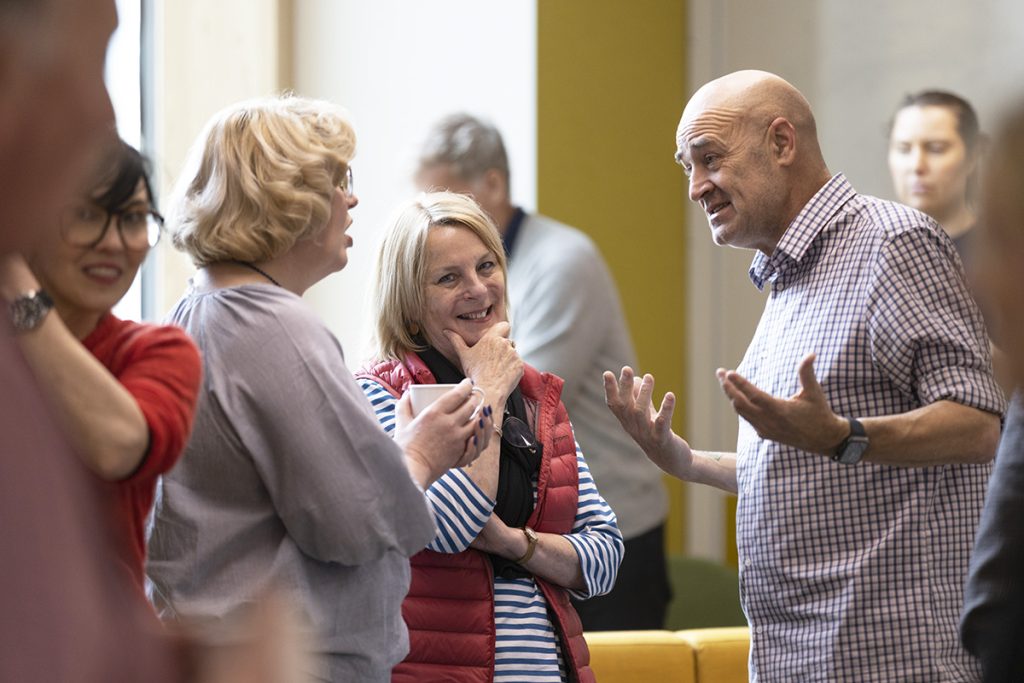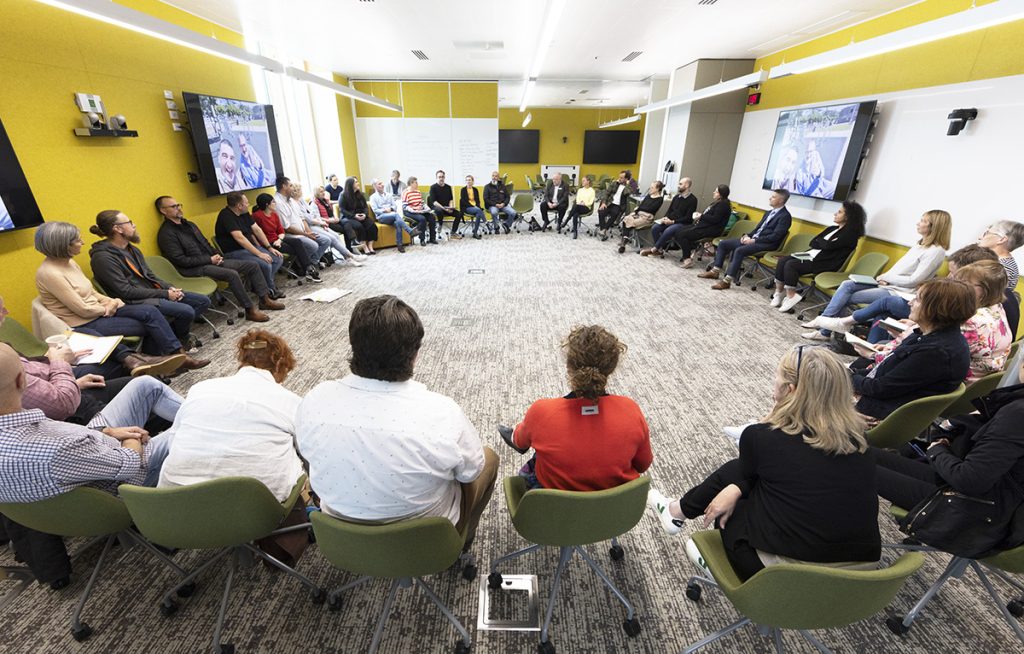“The SILA Program is investing in us as leaders, in our organisations, and in strengthening our ecosystem; the integrated nature of the learning program, combining opportunities for CEOs, for our Step-Up Leaders, and our organisations sets us up well to filter learning through the for-purpose sector.”
Janet Cousens, CEO, Act for Peace
SILA Cohort One Participant
Created by the Centre for Social Impact, the 10-month SILA Program has been designed and developed to allow for 24 for-purpose CEO participants in each cohort.
SILA focuses on leadership development and capacity building for CEOs (or equivalent) of for-purpose organisations in Australia with the aim of disrupting common ideas of leadership, to ultimately create greater social impact across Australia.
How much does it cost?
SILA is a fully funded program supported by The Myer Foundation and Sidney Myer Fund, the Paul Ramsay Foundation, Vincent Fairfax Family Foundation and Snow Foundation.
Participating CEOs and their organisations do not have to pay any up-front costs to partake in the program.

What is involved in the SILA program?
The evidence-based SILA program is made up of eight key components.
1. Step-Up Leader
The Step-Up Leader is identified by the CEO to act as the organisation’s CEO during the three multi-day retreats and the 3-month sabbatical period that form part of the program.
Their role is an essential part of the offering, as it not only supports the CEO to participate in SILA, but also helps develop the individual strengths of other leaders and boosts the capacity of the organisation.
The Step-Up Leader is supported during the program through tailored coaching, learning circles, webinars and personalised leadership assessments.
2. Individual leadership and wellbeing assessments
Each CEO and Step-Up Leader in the SILA Program will undertake self-reflective assessments to provide greater insight into their personal and professional leadership styles, strengths and weaknesses, and overall wellbeing.
3. Executive coaching
Throughout the SILA Program, the CEO and Step-Up Leader will undertake executive coaching to guide the process of individual learning and reflective practice.
The personalised coaching is completely confidential and tailored to the needs of each participating CEO and Step-Up Leader. Coaches work one-on-one with each of the leaders to help them identify their needs, discuss challenges, and explore their wellbeing requirements.
To support the coaching program, each CEO will undertake two individual assessments, a 360 degree assessment and the Global Leadership Wellbeing Survey (GLWS).
Coaches provide guidance to each participant to help them implement changes to enhance their effectiveness, leadership and overall wellbeing, and to also help build the capacity of their organisation.
4. Group retreats
Three retreats are delivered as part of every 10-month SILA Program, each held over 3-3.5 days during the middle of the week. The retreats provide an immersive learning environment for CEOs to explore various topics, including self-leadership, leading within a complex social ecosystem, and aligning the self, organisation and systems leadership for social change.
Each retreat is curated to the leadership needs of the cohort and is facilitated by our program facilitators. Retreats, together with the sabbatical period, provide opportunities for the Step-Up Leader to step into their personal leadership more fully, as the CEO of their organisation, whilst the CEO is on leave.

5. Learning circles
Over the course of the program, CEOs participate in small group learning circles of up to six participants. The learning circles provide a more intimate space for CEOs to discuss their leadership challenges and concerns, to gain valuable advice and guidance from their peers.
We would like to recognise and pay tribute to the contribution of Indigenous people in the creation and use of learning circles. The use of a learning circle (or a yarning circle) is an important process within Aboriginal culture and Torres Strait Islander culture. It has been used by Indigenous peoples in Australia and from around the world for centuries to learn from a collective group, build respectful relationships, and to preserve and pass on knowledge.
6. Organisational Capacity Fund
Each organisation of participating CEOs will receive more than $35,000 in capacity funding to be spent on building the capacity of the organisation.
The funding remains untied and is intended to support organisational capacity building requirements, such as professional development courses, executive team coaching, strategic development and additional duties payment for the Step-Up Leader.
7. Tailored 3-month sabbatical
Each CEO participant will undertake a 3-month sabbatical. During this sabbatical period, CEOs are asked to completely disengage from their organisations and take a period of leave. There will be no coursework or assignments to complete during this period.
The organisation will commit to the CEO continuing to be paid during their period of leave, on top of their usual annual leave entitlements, and the identified Step-Up Leader from the organisation will step-up into the CEO role.
The organisational capacity funding may be put towards some of these costs, such as additional duties can pay for the Step-Up Leader or assist with backfilling a position.
SILA’s 3-month sabbatical will provide CEOs with dedicated time and space away from their organisation, enabling them to discuss, apply learnings and deeply reflect on the SILA Program. It also provides the opportunity to focus on personal and important professional issues as well.
Sabbatical periods are proven to have several benefits for organisations and their CEOs. Need more information on the sabbatical? Read more here.
8. Sabbatical Readiness Process
The sabbatical readiness process involves a number of activities to help prepare the CEO, SUL and organisation for the sabbatical period.
9. Sabbatical Reintegration Process
The sabbatical reintegration process prepares the CEO, SUL and organisation for the CEO to return to the organisation after sabbatical period.
